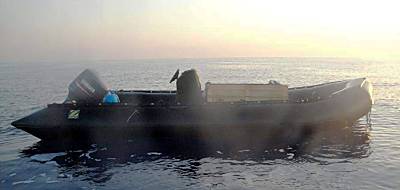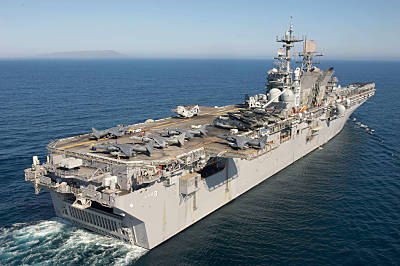WASHINGTON — Navy researchers are supporting today’s warfighter with new advances in biomedical research and development.
“Medical research and development activity provides the inspiration for discovery and further development of new ideas, new concepts, new drugs or surgical interventions,” Dr. Wayman Cheatham, special assistant for medical research to the Navy surgeon general and director of the Navy Bureau of Medicine and Surgery’s Navy Medicine Research and Development Center, said during a “DOD Live” bloggers roundtable yesterday.
Cheatham said Navy Surgeon General Vice Adm. (Dr.) Adam M. Robinson Jr. has established five areas of priority in terms of strategic research to support the Defense Department as a whole as well as those under the care of Navy Health. Those priorities are traumatic brain injury and psychological health, medical system support for maritime and expeditionary operations, wound and injury management throughout the continuum of care, hearing restoration and protection and undersea medicine.
This overall research the Navy does to support these areas include surveillance for emerging disease, drug and vaccine development, researching environmental toxins, and medical research and development supporting force protection. To support these efforts, the Navy has medical research and clinical investigation operations on five continents, as well as among the islands of the Pacific Ocean.
Cheatham said one of the Navy’s latest developments in research has been trying to determine the best agent to stop bleeding in people wounded on the battlefield. Through a collaborative effort with the Army, researchers developed QuikClot combat gauze, a wrap for wounds that seems to be more effective in controlling bleeding.
He said the latest technologies in wound and injury management are providing the greatest degree of survival and return of individuals to functionality following injury in any conflict.
“Greater than 95 percent of individuals now who are injured on the battlefield, when reached and found to be alive, survive their injuries through a long continuum of care,” he said, calling that survival rate “astounding and historical.”
The Navy also is researching the use of hyperbaric oxygen chambers in treating traumatic brain injury and post-traumatic stress, he said.
“We have been involved in a number of very significant research projects,” he added. “It’s important that the question of hyperbaric oxygen utilization for treatment of traumatic brain injury or post-traumatic stress disorder be investigated in a very, very rigorous and ethical fashion.”
Monitoring the long-term effects of service on submarines to determine whether unanticipated situations develop or health concerns emerge is another area of ongoing research, Cheatham said, and Navy researchers also are working with agencies such as the Centers for Disease Control and the World Health Organization in vaccine development.
“Navy laboratories have been integral to the process of investigation and vaccine development by means of their being deployed around the world,” he said. “They have an opportunity to actually be first on hand to sample outbreaks of infection or illness and determine the actual type of virus that might be involved. So Navy serves as a very, very important link in the worldwide surveillance and intervention process.”
Citing concerns about using resources to the fullest extent possible, Cheatham said he can assure the public that the Navy is carrying out its commitment to the highest caliber of research and medical education, and that those two areas are being maintained as strategic priorities for the Navy.
“New linkages between research and development and our clinical activities at our medical treatment facilities are evidence of this type of commitment,” he said.
Source:
U.S. Department of Defense
Office of the Assistant Secretary of Defense (Public Affairs)

 von
von 
